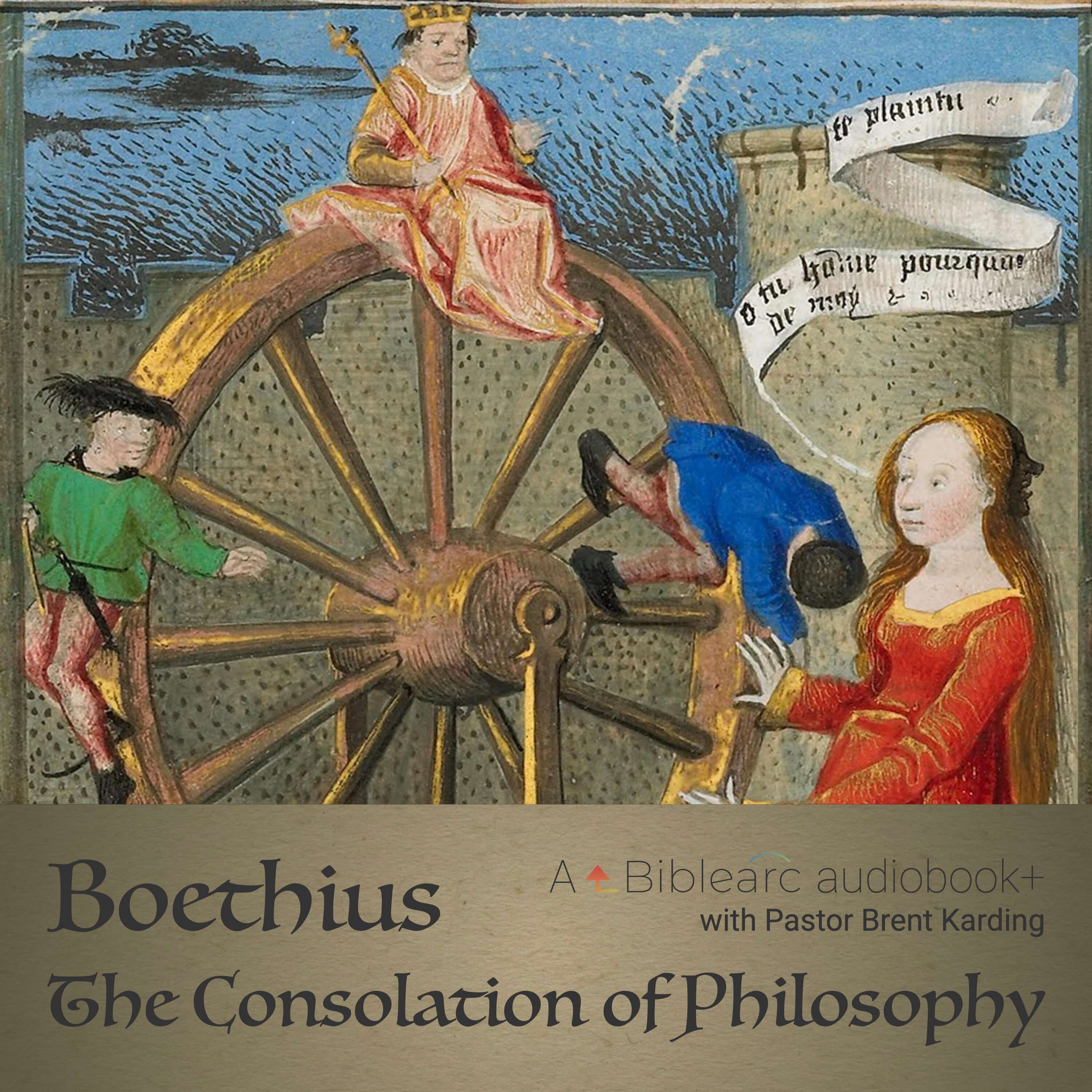The Consolation of Philosophy
Suffering, Satisfaction, and Sovereignty
Study one of the most influential and important books in Christian history, written in the sixth century by a Roman civil servant named Boethius, awaiting execution for a crime he didn't commit.
Note: This course was originally presented LIVE in the Fall of 2022. It is now available as a self-paced course with feedback from a coach and key video clips from the live class times.
Note: This course was originally presented LIVE in the Fall of 2022. It is now available as a self-paced course with feedback from a coach and key video clips from the live class times.
Since in this world inconstancy is sure, and rampant changes are the rule, then trust in fleeting goods, you fool!
Consolation, ii, 3.

[T]he highest God is totally full of the highest and perfect good...[and since]...the highest good is happiness...God is happiness itself.
Consolation, iii, 10.
Overview
While languishing in prison, with his life hanging in the balance, Boethius encouraged himself by writing an imagined conversation between himself and philosophy personified (rather like Lady Wisdom in the book of Proverbs). She teaches us that the way to endure suffering rightly is to know God, who is true happiness itself, and who governs the world perfectly, no matter how things look from our limited perspective.
Although this book can be daunting to read apart from expert guidance, its lessons are life-changing. We too need to learn to rejoice in the Lord in all circumstances, and trust his providence through suffering, and generations of Christians have found The Consolation a helpful guide to help them travel out of the valley of earthly problems to the heights of the knowledge of God for their joy in Christ.
Course Instructor
Brent
What are the "Reading with the Fathers" Courses?
The goal of these courses is to help students better understand and delight in Christ through Scriptural theology in the light of a careful reading of a historic Christian book.
- “A careful reading” because we want to honor the author and his book and deal rightly with its contents (“love your neighbor as yourself”)
- “Scriptural theology” because our main focus at Biblearc is on studying the Bible
- “To better understand and delight in” because theology should not only inform the head but affect the heart and hands
Objectives
- To help you understand Boethius's arguments and his overall main point
- So you can judge those arguments and main point in the light of Scripture
- So you will better know and delight in Christ through Scriptural theology
Format
- Read the first step of the lesson (about 10 minutes of work).
- Read the assigned text from The Consolation of Philosophy (between two to three hours).
- Answer questions to help you dig into the meaning of the text and of Scripture and submit an assignment for feedback (about 20 minutes).
- Watch clips from the live class time for a discussion of the chapter (about half an hour).
Prerequisites
Although this course seeks to follow what is taught in the Treasury course about reading extrabiblical literature, there are no prerequisites for taking it.
Edition
Through the Biblearc Books eReader, you will have free access to our modernization of H.R. James's public domain translation. (It will soon be available as a Kindle book.) We quote from it throughout this course.
We also recommend two other modern translations, which are excellent supplementary resources for taking this course.
 The Consolation of Philosophy, translated by P.G. Walsh
The Consolation of Philosophy, translated by P.G. WalshThis is the translation quoted from at the beginning of this page. It includes an introduction to Boethius's life and times, and includes summaries of each chapter and book, with copious helpful endnotes.
 The Consolation of Philosophy, translated by Scott Goins and Barbara H. Wyman
The Consolation of Philosophy, translated by Scott Goins and Barbara H. WymanThis translation is also excellent, and perhaps a little easier to read than Walsh. Besides an introduction to Boethius and copious footnotes, they include several essays, which are worth the price of the volume, especially those by Lehman, Markos, and Orrick.
Audiobook+
We have made an audiobook of our modernization of the Consolation, but have included more than the audiobook: Brent, the course creator, has recorded 10 conversations on specific chapters with Bill Emberley, another pastor at his church. Some of your questions about difficult concepts in the Consolation will be answered in those discussions! They will take you further in your understanding of many areas of God's truth, and help you apply what you are learning as you listen.
![[Course image]](https://s3.amazonaws.com/cdn.gospelpaths.com/tenants/5/1660254105719-consolationcourseimage.jpeg)
